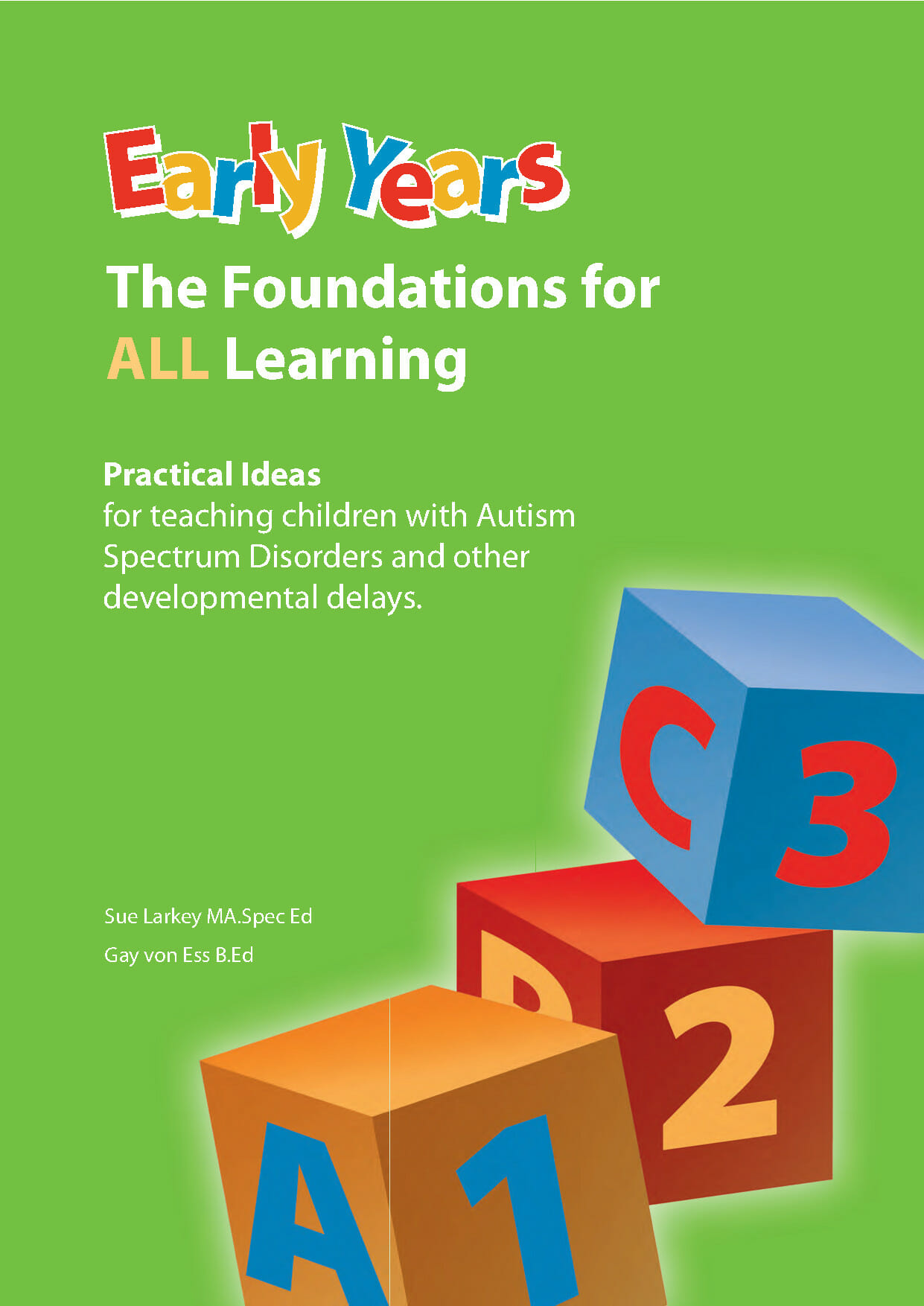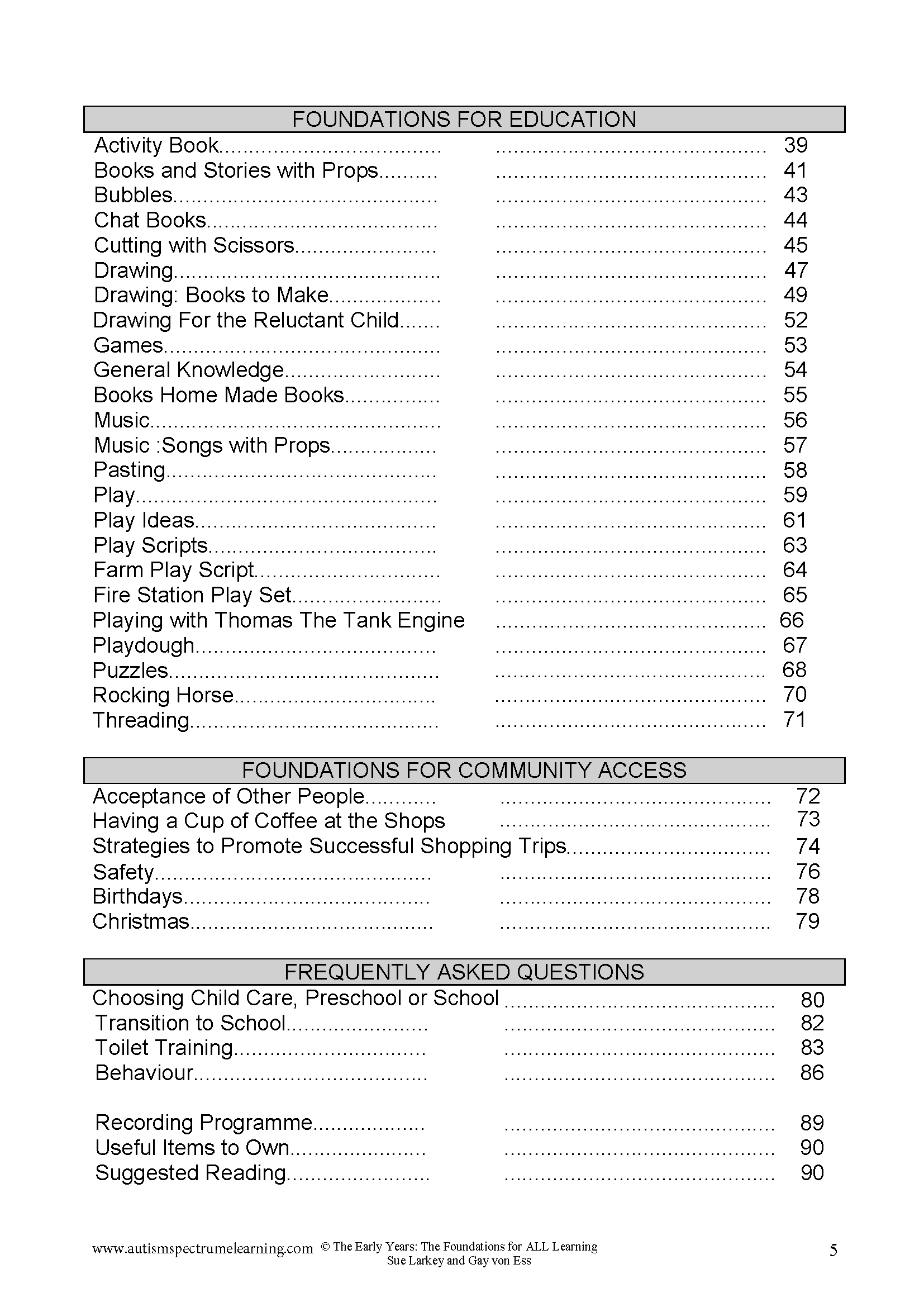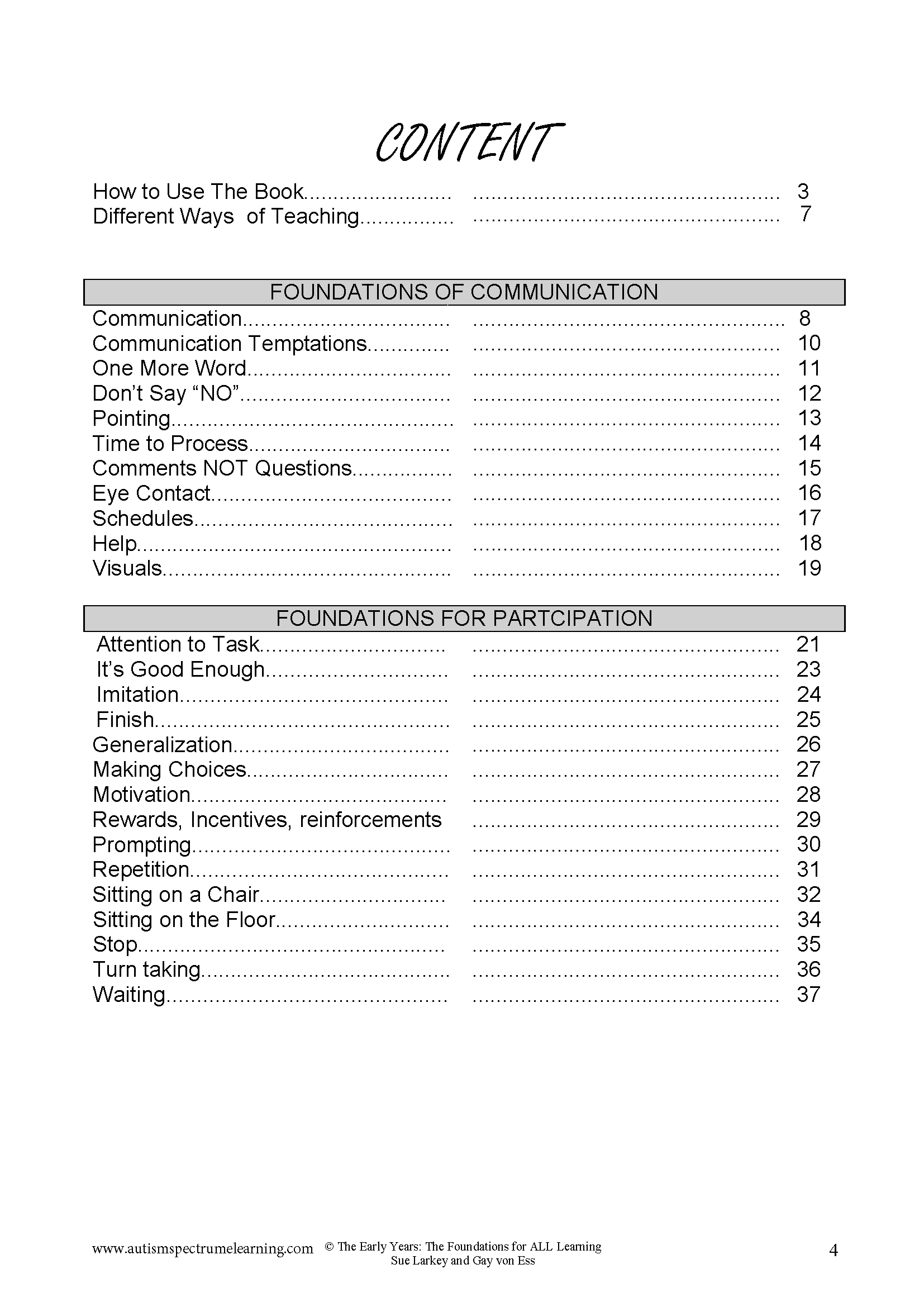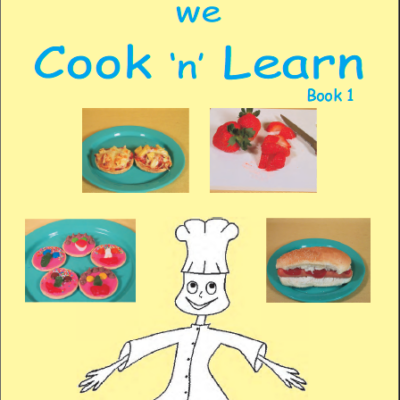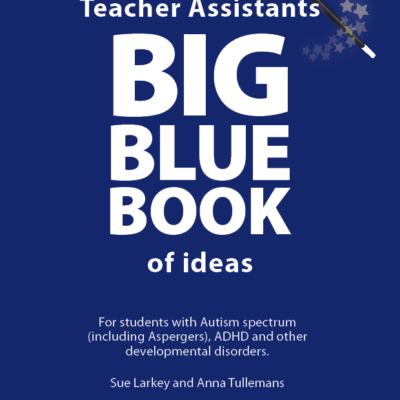Early Years – The Foundation for ALL Learning (Digital Book)
A$39.95
Select Your Currency>>
The Early Years: The Foundations For All Learning | by Sue Larkey & Gay von Ess | code: B04 | This book is full of practical ideas to give children with an ASD and other developmental delays the KEYS to learning. Teaching to play, write, draw, imitate etc. Toilet training, community access, etc. To sit, ask for help, wait, play, attention to task, sign songs, etc. Great easy to photocopy programmes.
Introduction…………………………………………………………… 11
AcceptanceKey……………………………………………………. 12
Diagnosis…………………………………………………………… 13
DSM5………………………………………………………………………. 13
Websites and Checklistsfor Diagnosis……………………. 14
GettingADiagnosis……………………………………………….. 1
Girls onthe Spectrum…………………………………………………… 15
11 Key Ways Girls DifferFromBoys……………………………………… 15
OCD, ODDand ADHD……………………………………………… 16
DisabilityStandards……………………………………………………………………. 19
Making Learning Fun – 12 Key Strategies to MakeLearning Fun……… 20
Build A Strong Relationship withtheStudent……………………………………. 21
9 Key Ways toBuild Rapport…………………………………….. 21
5 Key Ways for Maintaining Positive Relationships with StudentsandChildren.. 22
ExecutiveFunctioning…………………………………. 23
5 Key Areas to Support Difficulty withExecutiveFunctioning……….. 23
Signs of Problems withWorking Memory……………………. 23
Key Strategies to Support Difficulty withExecutiveFunctioning……………. 24
10 Key Strategies for Working with StudentswithASD………………….. 25
Whole School Engagement toEncourage Understanding…………….. 26
- Key Ways to Engage theBroader Community………………… 26
- Key Strategies to Celebrate Diversityand Difference………………… 27
Peers inthe Classroom……………………………………………………….. 28
8 Key Strategies to Promote Understanding intheClassroom…………….. 29
It’sNotFair!……………………………………………………………………………. 30
Key Strategies to Eliminate ‘It’sNot Fair’………………………………………….. 30
Summary Profile ofthe Student……………………………………………………….. 31
Things to Include Onthe Profile…………………………………………. 31
How to Use theSummaryProfile…………………………………. 31
Summary Profile- Proforma………………………………………………… 32
10 Key People You Should Share theProfileWith…………………………….. 33
Setting Up A Classroom for StudentswithASD…………………………. 34
Key Strategies for ClassroomSetUp…………………………… 34
Key Strategies for Successful OpenPlanClassrooms…………………… 37
Specialist Teachers andRelief Teachers………………………………. 38
- Key Strategies for Specialist andReliefTeachers……….38
TeacherAssistants…………………………………………………………………. 39
- Key Strategies forTeacherAssistants………………………………… 39
8 Key Thoughtsfor Assistants…………………………………………………. 40
5 Key Strategies If You Don’t Havean Assistant………………………. 41
Homework – 10 Key StrategiesforHomework………………………….. 42
Tutors – Key Benefits ofUsingTutors………………………………….. 43
Assignments – Key StrategiesforAssignments……………………. 44
Routines……………………………………………………….. 45
Use A Range Of Strategies toBuild Flexibility……………………. 45
ChoiceMaking…………………………………………………………………………….. 46
Key Strategies forChoice Making………………………………………… 46
Now Next Later- Proforma……………………………………………… 47
Visuals -10 Key Strategiesfor Visuals…………………………………….. 48
EngagingDisengagedStudents………………………………………… 49
Key Strategies To Re -Engage Students……………………………………. 49
Adapting Tasks andMakingAdjustments…………………………………… 51
Testsand Exams……………………………………………….. 51
Health and Physical EducationandSport……………………………….. 51
Sports/AthleticsCarnivals…………………………………………………………… 52
English Studies/WritingAssignments/NoteTaking………………………. 53
Useof Technology………………………………………………………… 53
Orals/Talks/Presentations……………………………………………………………………………. 53
Homework Diaries -KeyStrategies……………………………………………………………… 54
10 Key Strategies for NationalNaplanTesting…………………………………………………………. 55
Timers and Clocks………………………………………………………………………………………………… 56
10 Key Strategies for Using Timersand Clocks……………………………………………… 56
Concept of Time…………………………………………………………………………………………………… 57
Key Strategies to Develop a ConceptOfTime………………………………………………. 57
Motivation and Motivators – Key Strategiesfor Motivation……………………………………… 58
SpecialInterests……………………………………………………………………………………………………. 59
Creating aRewards System……………………………………………………………………………………. 60
12 Key Strategies for an EffectiveRewardsSystem……………………………………….. 60
3 Key Strategies inCreating Rewards……………………………………………………………. 61
10 Key Strategies inUsingRewards……………………………………………………………… 61
Review theReward Plan……………………………………………………………………………… 62
4 Key Strategies to Change theReward Plan………………………………………………….. 62
Earning Points Chart- Proforma…………………………………………………………………… 63
MakingMistakes………………………………………………………………………………………………….. 64
7 Key Strategies to TeachMakingMistakes………………………………………………….. 64
IPad Apps – 10 Key Strategies for Managing IPadsandTablets…………………………………. 65
Reading………………………………………………………………………………………………………………… 66
17 Key Strategies toEncourage Reading………………………………………………………… 67
Maths………………………………………………………………………………………………………………….. 68
8 Key Strategies for a SuccessfulMathsProgram…………………………………………… 68
Handwriting…………………………………………………………………………………………………………. 69
7 Key Strategies to Help LeftHandedStudents……………………………………………… 70
Importanceof Downtime……………………………………………………………………………………….. 71
Key Strategiesfor Downtime………………………………………………………………………. 71
Highly Distracted Children – WhattoDo…………………………………………………………………. 72
Movement…………………………………………………………………………………………………. 72
Touch……………………………………………………………………………………………………….. 73
Sound……………………………………………………………………………………………………….. 73
Smell…………………………………………………………………………………………………………. 74
SchoolCamps………………………………………………………………………………………………………. 75
Key Strategies to Support Students GoingOnCamp……………………………………… 75
TravelArrangements…………………………………………………………………………………… 75
Activities/Sleep Arrangements/AppropriateJobsEtc……………………………………… 76
Behaviour…………………………………………………………………………………………………………….. 77
Behaviour as ASecondLanguage………………………………………………………………….. 77
11 Key Strategies to Understanding and DealingwithBehaviour……………………… 78
- Key Reasons for UnsuccessfulBehaviour Modification……………………………….. 79
Highly Anxious Children – Whatto Do……………………………………………………………………. 80
- Key Strategies for Creating aCalmEnvironment…………………………………………. 81
6 Key Strategies for Creating a Calm Area at SchoolandHome………………………… 82
5 Key Steps to Developing Self -Calming Strategies………………………………………. 83
SensoryProcessing……………………………………………………………………………………………….. 84
11 Key Signs of SensoryProcessingDifficulties…………………………………………….. 84
Common Causes ofSensoryReactions…………………………………………………………. 85
Sensory Tools – Key Benefits for UsingSensoryTools…………………………………………….. 86
Meltdowns, Shutdowns andCatastrophicReactions…………………………………………………. 87
Meltdowns………………………………………………………………………………………………… 87
Shutdown………………………………………………………………………………………………….. 87
Catastrophic Reactions……………………………………………………………………………….. 87
Common Causes of Meltdown/Shutdown orCatastrophicReactions……………….. 87
Key Strategies to Use When A Child Is Having A MeltdownorShutdown……….. 89
Consequences of Behaviour…………………………………………………………………………. 89
Tantrums……………………………………………………………………………………………………………… 90
Difference between a Meltdown anda Tantrum…………………………………………….. 90
Key Strategies to Use When A Child Is Havinga Tantrum……………………………… 90
Anxiety, ASD and the Power ofPreventativeBreaks………………………………………………… 91
Programmes That Can HelpManageAnxiety………………………………………………… 91
Key Strategies forPreventativeBreaks…………………………………………………………. 92
Suspensionand Expulsion……………………………………………………………………………………… 93
7 Key Strategies for Suspensionand Expulsion……………………………………………… 93
Difficulties atBreak Times/Lunchtimes…………………………………………………………………… 94
13 Key Strategies forBreak Times/Lunchtimes……………………………………………… 94
Key Strategies for Creating Successful Clubs andLunchtimeActivities…………….. 95
SocialScripts………………………………………………………………………………………………………… 96
10 Key Reasons Why Social Scripts WorkSoWell………………………………………… 96
3 Key Strategies in CreatingSocialScripts…………………………………………………….. 97
6 Reasons Why Social Scripts SometimesDon’tWork…………………………………… 97
Friends at Homeand School…………………………………………………………………………………… 98
Key Strategies to Help Develop FriendshipsatHome……………………………………. 98
Social Skills OutsideThe Home……………………………………………………………………. 99
Social Skills Opportunities OutsideThe Home………………………………………………. 99
BirthdayParties………………………………………………………………………………………………….. 100
Key Strategies forBirthday Parties…………………………………………………………….. 100
Key Strategies for Partiesat Home……………………………………………………………… 100
Bullying……………………………………………………………………………………………………………… 101
10 Signs ofBeing Bullied…………………………………………………………………………… 101
Whole School Approachto Bullying…………………………………………………………… 101
6 Key Strategies for DealingwithBullying………………………………………………….. 102
Why Do Students With ASDBully Others?………………………………………………… 102
What CanBe Done?………………………………………………………………………………….. 102
Choosinga School……………………………………………………………………………………………….. 103
5 Key Points in ChoosingASchool……………………………………………………………. 104
Key Questions That You Need To Answer WhenInterviewingSchools………….. 104
Key Strategies WhenVisitingSchools…………………………………………………………. 105
Key Strategies for Evaluating Your Findings When Looking ForaSchool………… 105
Selecting theRight Teacher…………………………………………………………………………………… 105
Key Strategies in Selecting theRight Teacher……………………………………………….. 105
Transitionto School…………………………………………………………………………………………….. 107
TransitionSecondarySchool………………………………………………………………………………… 108
Transition to Work……………………………………………………………………………………………… 109
Key Strategies to BeingWork Ready………………………………………………………….. 109
Key Strategiesfor Work……………………………………………………………………………. 110
Key Skills forthe Workforce……………………………………………………………………… 110
Key Skills for Preparing Foran Interview……………………………………………………. 111
Key Skills inan Interview………………………………………………………………………….. 111
Tell Me about Yourself- Proforma…………………………………………………………….. 112
Developing A Good Relationship between Homeand School…………………………………… 113
8 Key Strategies forTeam Work………………………………………………………………… 113
3 Key Strategiesfor Meetings……………………………………………………………………. 114
- Key Strategiesfor Goals…………………………………………………………………………. 114
Communication between Homeand School…………………………………………………………….. 114
- Key Strategiesfor Communication…………………………………………………………… 114
Communication Books………………………………………………………………………………. 115
Parent Teacher Relationship Breakdown – Whatto Do……………………………………………. 116
Key Strategies forSuccessfulRelationships…………………………………………………. 116
Separationand Divorce………………………………………………………………………………………… 117
Key Strategies for Managing SeparationandDivorce……………………………………. 117
Driver’sLicence………………………………………………………………………………………………….. 118
Key Strategies for Getting aDriversLicence………………………………………………… 118
MovingHouse……………………………………………………………………………………………………. 119
7 Key Strategies forMovingHouse……………………………………………………………. 119
Puberty……………………………………………………………………………………………………………… 120
Books for Homeand School………………………………………………………………………. 121
Self-Carefor Parents……………………………………………………………………………………………. 122
Key Strategies for Self- Care……………………………………………………………………… 122
Key Strategies toAvoidStress…………………………………………………………………… 123
FamilyFunctions………………………………………………………………………………………………… 124
Key Strategies forFamilyFunctions…………………………………………………………… 124
Sleep………………………………………………………………………………………………………………….. 126
16 Key Strategiesfor Sleep………………………………………………………………………… 126
Exercise……………………………………………………………………………………………………………… 127
Therapies and Interventions…………………………………………………………………………………. 128
Medication andNaturalRemedies…………………………………………………………………………. 129
Keep aMedicationDiary………………………………………………………………………….. 130
Head Lice – 8KeyStrategies…………………………………………………………………………………. 131
Death, Dyingand Grief………………………………………………………………………………………… 132
14 Key Strategies forManagingGrief…………………………………………………………. 132
People’sInsights…………………………………………………………………………………………………. 134
Dr Temple Grandin – Visual and VerbalLogic Thinkers,……………………………….. 134
Dean Beadle – 10 Key Strategies toSuccessfulEducation………………………………. 136
Dr Wendy Lawson – 9 Key Strategies toEncourageEngagement/Participation…. 137
FrequentlyAskedQuestions………………………………………………………………………………… 138
References………………………………………………………………………………………………………….. 141
